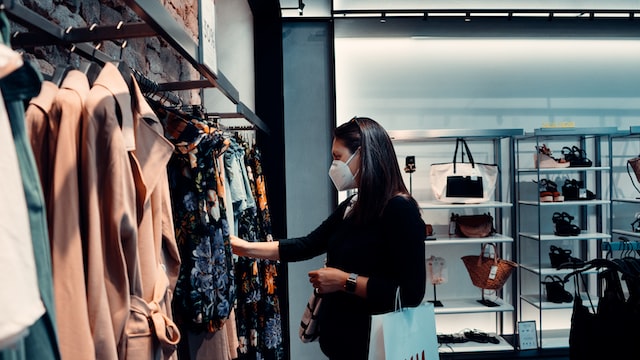Artificial intelligence (AI) is having a major impact on the retail industry. AI technology is being used to improve many aspects of retail shopping, from product recommendation engines to personalized customer service. For example, many retailers are using AI-powered chatbots to provide instant customer service, and AI algorithms to recommend products to customers based on their previous purchases and browsing history. AI is also being used to improve supply chain management and warehouse operations, helping retailers to better manage inventory and reduce costs. Overall, the use of AI in retail is helping to make the shopping experience more efficient, personalized, and convenient for customers. Here's a quick review of the top five trends we're seeing in retail for 2023.

The world of retail shopping is constantly changing and evolving, and one of the biggest trends in recent years has been the rise of hybrid online and offline shopping. This trend, also known as "omnichannel" shopping, has seen retailers strive to create a seamless and integrated experience for customers, whether they're shopping online, in-store, or via a mobile app. The increasing use of mobile devices makes it easy for consumers to shop online and compare prices while they are in a physical store.

One way that retailers are embracing this trend is by using artificial intelligence (AI) to help improve the customer experience. For example, many retailers are using AI to personalize the shopping experience for customers, by making personalized product recommendations based on their browsing and buying history. This not only helps customers find the products they're looking for, but it also helps retailers increase sales by presenting customers with relevant and compelling offers.
-jpg.jpeg)
Another trend in retail shopping is a growing focus on the ethics of how products are made. Consumers want to ensure that the products they buy are produced in a sustainable and ethical manner. As they become increasingly conscious of the environmental and social impact of their purchasing decisions, retailers are turning to AI to help them make more sustainable and ethical choices. For example, some retailers are using AI to track and monitor the supply chains of their products, ensuring that they're sourced from environmentally and socially responsible sources.

One of the most exciting developments in retail is the use of augmented reality (AR), virtual reality (VR), and the metaverse. These technologies are being used by retailers to create immersive and interactive shopping experiences that allow customers to try on clothes, see how furniture will look in their homes, and even visit virtual stores. By using AI to power these experiences, retailers can provide customers with a more engaging and personalized shopping experience.

Finally, the rise of cashless, contactless, and autonomous shopping and delivery is another trend that's being driven by AI. With more and more consumers opting to pay for their purchases using mobile payments and other digital payment methods, retailers are using AI to streamline the checkout process and make it more convenient for customers. Additionally, the use of autonomous vehicles for delivery is becoming more widespread, and AI plays a crucial role in making this possible.
Overall, the use of AI in retail is transforming how we shop and making the experience more personalized, sustainable, and convenient. Whether it's through personalized product recommendations, ethical sourcing, immersive shopping experiences, or streamlined checkout and delivery processes, AI is helping retailers to meet the changing needs of customers and stay ahead of the curve in an increasingly competitive market.
© 2023 Clarifai, Inc. Terms of Service Content TakedownPrivacy Policy






© 2023 Clarifai, Inc. Terms of Service Content TakedownPrivacy Policy